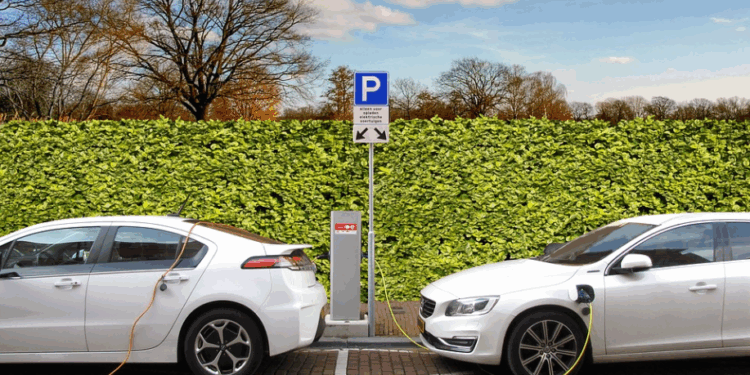The global buzz around electric vehicles (EVs) is growing louder every day. From Europe to China, countries are transitioning to greener mobility. But what about Tanzania? Should you consider buying an electric car now or wait for the dust to settle?
This detailed guide will break down everything you need to know about owning an electric vehicle in Tanzania — the pros, the cons, and real-world insights from the local automotive scene.
Electric Cars in Tanzania: The Current Landscape
Electric vehicles are slowly gaining ground in Tanzania, thanks to rising fuel prices, environmental awareness, and increased import options. While traditional internal combustion engine (ICE) cars still dominate the roads, interest in EVs has seen a noticeable spike in urban areas like Dar es Salaam and Arusha.
According to local market watchers, models like the Nissan Leaf, BMW i3, and Tesla Model 3 are already on the roads — mostly imported second-hand.
Read more here about how the Tanzanian auto scene is evolving on automag.tz, a reliable source for car news, reviews, and regional industry updates.
Pros of Buying an Electric Car in Tanzania
1. Major Fuel Savings
Let’s face it — fuel costs are high and unpredictable. With EVs, you bypass the petrol station altogether. A full charge at home costs a fraction of what you’d spend on a full tank.
Example: A Nissan Leaf can go up to 150–200 km on a single charge, costing around TZS 3,000–5,000 depending on your electricity provider.
2. Low Maintenance Costs
EVs have fewer moving parts than traditional vehicles. That means:
- No engine oil changes
- No spark plugs
- Fewer brake pad replacements (thanks to regenerative braking)
Over time, this translates to thousands of shillings saved in routine maintenance.
3. Environmentally Friendly
Tanzania is not immune to climate change. By driving electric, you reduce:
- Greenhouse gas emissions
- Urban air pollution
- Dependence on imported fuel
Supporting cleaner energy alternatives contributes to a greener, healthier Tanzania.
4. Quiet and Smooth Drive
Electric vehicles are virtually silent and provide instant torque, offering a smooth and comfortable drive — especially ideal for congested city traffic.
Cons of Buying an Electric Car in Tanzania
1. Limited Charging Infrastructure
This is the elephant in the room. While private home charging is possible, public EV charging stations are few and far between.
As of 2025, only a handful of stations exist in Dar es Salaam, Arusha, and Mwanza. Long-distance travel remains a challenge.
2. High Initial Purchase Cost
Even though EVs save money over time, the upfront cost is still higher than conventional cars.
Example: A used Nissan Leaf on auto24.tz may cost around TZS 25M–35M, depending on year and battery health. That’s nearly double the price of a decent used Toyota Vitz or Probox.
To find second-hand electric or hybrid cars, visit auto24.tz — Tanzania’s leading online car marketplace.
3. Battery Degradation
EV batteries wear out over time, and replacement is costly. A battery with poor health will drastically reduce your car’s range, making it inconvenient for daily use.
When buying second-hand EVs, always request a battery health report.
4. Lack of Local Expertise
Not all mechanics in Tanzania are trained to handle electric vehicles. If your EV needs repairs, you may be limited to select garages — often in major cities.
Are Electric Cars Suitable for Tanzanian Roads?
Yes and no. While urban roads in Dar and Arusha can accommodate EVs well, rural areas with poor roads and limited electricity access may not be ideal — at least for now.
Most EVs are low-clearance, so you’ll need to be cautious if you’re used to driving rugged 4WDs in hilly or off-road regions.
Government Policy and Support
The Tanzanian government has shown interest in green mobility but hasn’t rolled out EV-specific incentives yet. No tax relief, no government subsidies, and no public campaigns — unlike Kenya or Rwanda, which have begun offering duty exemptions.
However, ongoing discussions suggest future changes. Stay updated through reliable sources like automag.tz, which reports on these policy developments in real-time.
How to Charge an Electric Car in Tanzania
Option 1: Home Charging
- You can charge your EV at home overnight using a standard socket.
- Install a dedicated EV charger if possible for faster charging.
Option 2: Public Charging Stations
- Limited but growing.
- Most stations are Level 2 (moderate speed), with rare Level 3 (fast chargers).
Note: The availability of solar-powered chargers is expanding, especially in commercial areas.
Cost Comparison: EV vs ICE Car Over 5 Years
| Factor | EV (e.g., Nissan Leaf) | ICE (e.g., Toyota Vitz) |
|---|---|---|
| Initial Cost | TZS 30M | TZS 15M |
| Fuel/Energy | TZS 1.5M | TZS 5M+ |
| Maintenance | TZS 500K | TZS 2M+ |
| Emissions | 0g/km | 120g/km |
| Noise | Silent | Noisy |
| Resale Value | Moderate | High (for ICE) |
Future of EVs in Tanzania
Tanzania is slowly warming up to electric cars. Key developments expected:
- More EV-friendly policies
- Private investment in charging networks
- Greater public awareness
- Entry of budget-friendly EV brands from China and India
In 2–5 years, EV ownership could become more mainstream — especially in cities.
Tips for Buying an Electric Car in Tanzania
- Research models with reliable battery life.
- Check charging options near you before buying.
- Verify the car’s origin and battery health.
- Buy from trusted dealers or platforms like auto24.tz.
- Ask about service and warranty coverage.
Conclusion: Should You Buy an EV Now or Wait?
If you live in an urban area, have regular electricity, and can afford the upfront cost, now is a great time to go electric. The long-term savings, environmental benefits, and smooth driving experience are hard to beat.
However, if you live far from cities or need a rugged workhorse, you may want to wait a little longer until the infrastructure and market mature.
Either way, the future of Tanzania’s roads is electric — and getting closer every year.
Stay informed through automag.tz, and explore your EV options today on auto24.tz.
FAQs
1. Can I charge an electric car at home in Tanzania?
Yes, you can use a standard plug or install a dedicated charger for faster results.
2. Which electric car models are common in Tanzania?
Popular models include the Nissan Leaf, BMW i3, and Tesla Model 3 — mostly imported second-hand.
3. Is it safe to drive electric cars during power outages?
As long as your battery is charged, yes. But long-term blackouts may affect charging availability.
4. How much does it cost to maintain an EV in Tanzania?
Much less than a petrol car — fewer parts to replace and no oil changes.
5. Where can I buy a used electric car in Tanzania?
Check out trusted online platforms like auto24.tz for a range of second-hand electric and hybrid vehicles.




